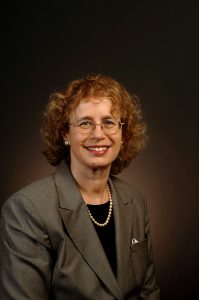Hava Tirosh-Samuelson studied natural philosophy of the Middle Ages for several years, and now is conducting a research project on modern technology and transhumanism. In both areas of research, she investigated the influences of religion on scientific direction.

At 2 p.m. Thursday in the Hall of Philosophy, Tirosh-Samuelson will give a lecture titled “A Critique of Transhumanist Futurism,” which will present transhumanism as a quest for transcendence and explain the Jewish influence on transhumanist perspective. Contrary to other lecturers this week, Tirosh-Samuelson will be critical of those contemporary scientific developments.
“My goal is to let people understand what contemporary technology is about to do, and it’s not trivial,” Tirosh-Samuelson said. “We are going to experience profound changes in the 21st century and we need to examine those changes, and I belong to those who are quite critical of some of those proposed changes.”
Tirosh-Samuelson grew up in the 1950s in Afikim, Israel, in a Kibbutz community that was separated from the rest of Israel. For Tirosh-Samuelson, growing up in the socialist Kibbutz meant growing up without money or ownership and living in a children’s home where she was separate from her parents for all but two to three hours each day.
But it also meant growing up in a robust and intellectually intense education system that was influenced by a combination of Judaism, socialism and Romanticism. Cultural expression was emphasized in her childhood, with focus on areas such as art, music, sports, science, nature and intellect.
Tirosh-Samuelson considers herself lucky to have grown up in the Kibbutz because she received a “superb education.”
“It was not the typical American values of ‘individual success no matter what,’ ” Tirosh-Samuelson said. “On the contrary, we knew that in order to be good we need to make the whole group very good. … We had very holistic way of life, which was meant to really create a different kind of a human being, a human being who would be not self-centered, not egotistic, not self-absorbed, but somebody who works for the good of the group.”
Tirosh-Samuelson said the Kibbutz was the product of a utopian vision not unlike Chautauqua. It gave her an intellectual excitement that sparked a life of thoughtful, academic research.
Now director of Jewish Studies, Irving and Miriam Lowe Professor of Modern Judaism and professor of history at Arizona State University, Tirosh-Samuelson began her academic career with a focus on medieval and early modern Jewish intellectual history. For a medievalist, the separation of science and religion is an old issue, because they used to be viewed as the same field: natural philosophy.
The modernist understanding of science emerged in the 19th century, and the word “scientist” was used for the first time in 1834. Tirosh-Samuelson said in a pre-modern period, there was no way to understand nature without a reference to God.
“Understanding the natural world required you to think about God and to raise what we will call theological questions, so theology was not just part of the science: Theology was understood as the queen of the sciences in the Middle Ages,” Tirosh-Samuelson said. “It was more sophisticated and more intellectually abstract and demanding — [the most] difficult subject of all subjects.”
Tirosh-Samuelson said transhumanism is a code word for a lot of technological developments in the second half of the 20th century. She views science and technology as one unit: technoscience, which is the way various science and technologies are converging and working together.
Due to those technologies, Tirosh-Samuelson said “we are now making ourselves into a design project.” She thinks the relationship between religion and science is still present today and is evident in areas such as transhumanism.
Tirosh-Samuelson’s research studies where that transhumanist vision aims to take humanity.
“In the 21st century, you can’t ignore the relationship between science and religion because both of them claim to know truth,” Tirosh-Samuelson said. “If you’re interested in truth, if you’re interested in wisdom, if you’re interested in knowledge, you have to get your mind wrapped around the dynamics between religion and science.”




